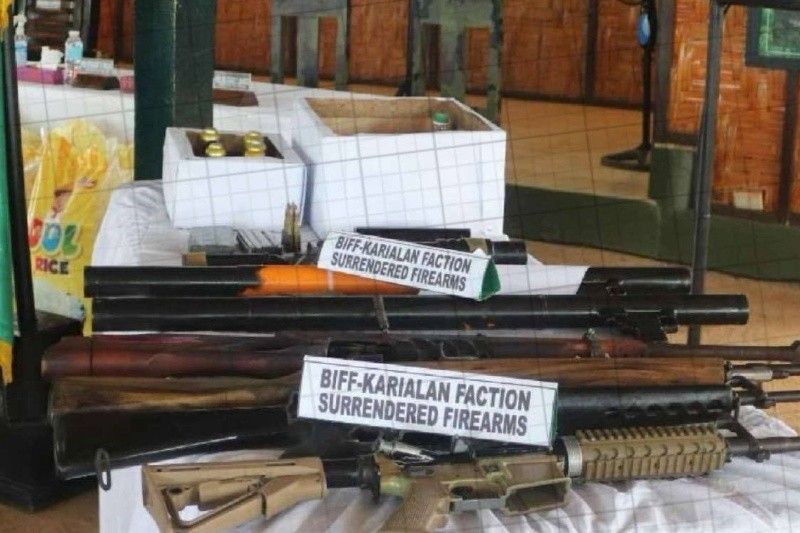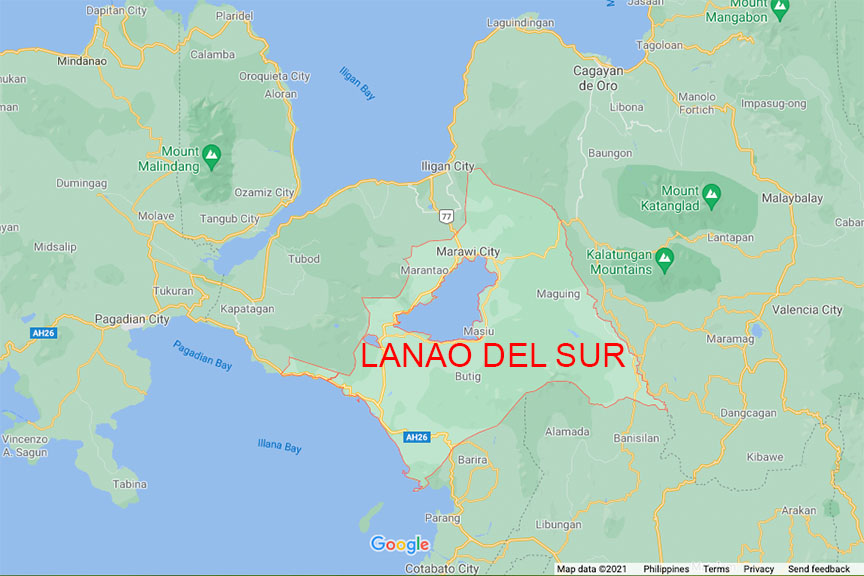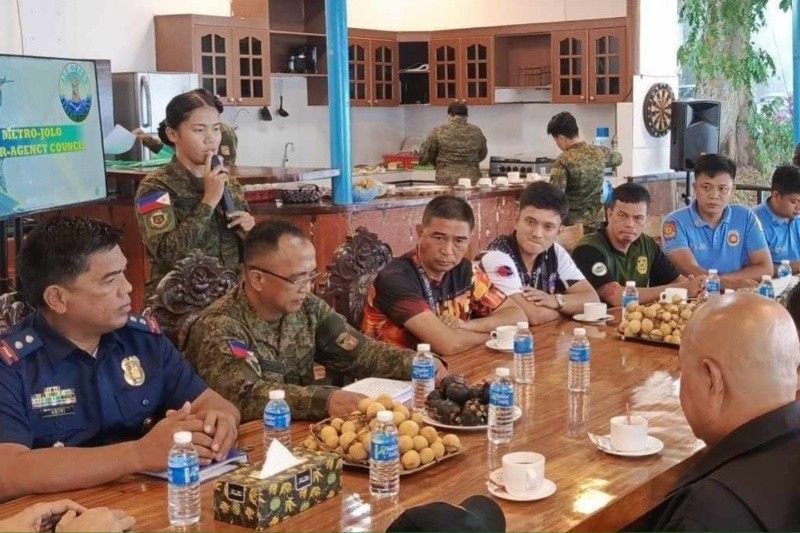From United Nations News (Aug 24, 2024): Tears and embraces as murderous 30-year family feud comes to an end (By Daniel Dickinson)
A Filipino man has been describing the outpouring of emotion as two families on the island of Mindanao settled a 30-year-long feud that escalated from tit-for-tat killings into a dispute involving two factions of a former insurgency movement.For many years, the western part of Mindanao has been the focus of an armed separatist struggle between the Philippines government and various Muslim insurgent groups.
In 2019, the Bangsamoro Autonomous Region in Muslim Mindanao (BARMM) was established as part of a peace deal between the government and the main insurgent movement, the Moro Islamic Liberation Front (MILF), which ended most of the fighting and gave the Muslim-majority areas in Mindanao a significant degree of self-rule.
However, challenges to peace remain, including the incomplete decommissioning of the insurgents, private armed groups belonging to rival local politicians, loose firearms and delays in implementing the peace agreement.
The former adversaries are now keeping the peace, but given these challenges, there are concerns that small family- and clan-level disputes involving ex-combatants could spiral out of control and upset the peace.
The UN identified the need for an institution to support the MILF peace mechanism, including conflict resolution involving ex-combatants at a more local level and so worked with the authorities in BARMM to establish the Peace, Security and Reconciliation Office (PSRO), which opened in January 2023.
UN News travelled to southwestern Mindanao to talk to the Executive Director of the PSRO, Anwar Alamada, as well as Lumanda “Manny” Idsla who sought a resolution to a three-decades-long family feud.

UN News/Daniel Dickinson Lumanda "Manny" Idsla stands by the grave of his second cousin whose killing started the feud.
Lumanda “Manny” Idsla: In May 1995, my second cousin, an elected official, was shot dead as he went to vote in municipal elections in Pikit. His brother suspected that a neighbour, who was also a relative of mine, had committed the crime and at 3pm on that same day went to his house and shot him dead.
This is how the feud or rido, as we call it in the BARMM, between two families began, which lasted almost 30 years. It led to the deaths of four other people, including my brother, as well as a child who was killed by a stray bullet.
Anwar Alamada: There are many similar feuds in the BARMM which begin for different reasons, including land disputes, petty crime, marriage and political and ideological rivalries. What starts as a localised argument can quickly escalate into a larger more deadly conflict as the involved parties seek help from private armed groups or former insurgent movements.
Lumanda “Manny” Idsla: The neighbours live just a few hundred metres away from our house, and so this area became a conflict zone. They had semi-automatic weapons such as AR15s and grenades. We moved out of the house and to the hills behind because we expected them to come and kill us at any time. My brother was shot at almost point-blank range through a window as he prepared food at home during Ramadan.
It was very stressful, and daily life ceased. I moved my family away from the village.
Anwar Alamada: Our approach to conflict resolution is to listen, to negotiate and to find an agreement which recognises the interests of both sides. It is not easy work to convince people to step back from conflict, it does not happen overnight, but is a long-term process.
Lumanda “Manny” Idsla: Charges were filed, but the judicial process is ongoing. Ultimately, this rido was a cycle driven by pride and vengeance. We could have avoided this escalation if we had had a strong leader.
Anwar Alamada: Since early 2023, we have resolved close to 100 disputes, including those between individuals, families and whole communities. Mr Idsla was the first to approach the PRSO wanting a resolution to the feud. We spoke to him and then approached the other family.
Lumanda “Manny” Idsla: We knew we wanted to stop the killings and no longer live in fear, and the PRSO was a good solution. Mr. Alamada and his team met individually with both parties and then brought us together. In the end, it was very straightforward, and we agreed to stop the feud. Just last week, we had a ceremony which was attended by hundreds of people from both sides. We swore on the Holy Koran to stop the feud. There were lots of tears, including from me, and we embraced each other.
Lumanda “Manny” Idsla: In May 1995, my second cousin, an elected official, was shot dead as he went to vote in municipal elections in Pikit. His brother suspected that a neighbour, who was also a relative of mine, had committed the crime and at 3pm on that same day went to his house and shot him dead.
This is how the feud or rido, as we call it in the BARMM, between two families began, which lasted almost 30 years. It led to the deaths of four other people, including my brother, as well as a child who was killed by a stray bullet.
Anwar Alamada: There are many similar feuds in the BARMM which begin for different reasons, including land disputes, petty crime, marriage and political and ideological rivalries. What starts as a localised argument can quickly escalate into a larger more deadly conflict as the involved parties seek help from private armed groups or former insurgent movements.
Lumanda “Manny” Idsla: The neighbours live just a few hundred metres away from our house, and so this area became a conflict zone. They had semi-automatic weapons such as AR15s and grenades. We moved out of the house and to the hills behind because we expected them to come and kill us at any time. My brother was shot at almost point-blank range through a window as he prepared food at home during Ramadan.
It was very stressful, and daily life ceased. I moved my family away from the village.
Anwar Alamada: Our approach to conflict resolution is to listen, to negotiate and to find an agreement which recognises the interests of both sides. It is not easy work to convince people to step back from conflict, it does not happen overnight, but is a long-term process.
Lumanda “Manny” Idsla: Charges were filed, but the judicial process is ongoing. Ultimately, this rido was a cycle driven by pride and vengeance. We could have avoided this escalation if we had had a strong leader.
Anwar Alamada: Since early 2023, we have resolved close to 100 disputes, including those between individuals, families and whole communities. Mr Idsla was the first to approach the PRSO wanting a resolution to the feud. We spoke to him and then approached the other family.
Lumanda “Manny” Idsla: We knew we wanted to stop the killings and no longer live in fear, and the PRSO was a good solution. Mr. Alamada and his team met individually with both parties and then brought us together. In the end, it was very straightforward, and we agreed to stop the feud. Just last week, we had a ceremony which was attended by hundreds of people from both sides. We swore on the Holy Koran to stop the feud. There were lots of tears, including from me, and we embraced each other.

© PSRO Families from Pikit in southwestern Mindanao agree to end a decades-long feud.
Anwar Alamada: The way we helped to resolve the feud was a win-win for both families. There was no blood money, which is what you normally pay when someone is killed in a feud. Since we began talking with the families, there has been no reoccurrence of hostilities.
Lumanda “Manny” Idsla: I have a good relationship with my neighbour now. We meet and talk about our farms, our challenges with irrigation and the crops we are growing. I can walk without an escort, and I no longer have any fear of being killed. I live with a sense of freedom. I am very thankful for the work of PRSO. It feels like a gift, as though I have received many thousands of bags of rice.
Anwar Alamada: I am very proud of our work because resolving conflicts brings peace to our community and with peace comes progress and development. There can be no development without peace. People here are very happy when peace prevails.
PRSO brings stability as it helps to manage and mitigate conflicts, and I believe without its presence there is more chance that small, localised disputes could escalate into larger conflicts and ultimately threaten the peace process in BARMM. It is important to resolve conflicts as early as possible to avoid escalation.
We want our work to support the BARMM peace process, which is ongoing, and ultimately to ensure that the region gains the autonomy as outlined in the political agreement.
Anwar Alamada: The way we helped to resolve the feud was a win-win for both families. There was no blood money, which is what you normally pay when someone is killed in a feud. Since we began talking with the families, there has been no reoccurrence of hostilities.
Lumanda “Manny” Idsla: I have a good relationship with my neighbour now. We meet and talk about our farms, our challenges with irrigation and the crops we are growing. I can walk without an escort, and I no longer have any fear of being killed. I live with a sense of freedom. I am very thankful for the work of PRSO. It feels like a gift, as though I have received many thousands of bags of rice.
Anwar Alamada: I am very proud of our work because resolving conflicts brings peace to our community and with peace comes progress and development. There can be no development without peace. People here are very happy when peace prevails.
PRSO brings stability as it helps to manage and mitigate conflicts, and I believe without its presence there is more chance that small, localised disputes could escalate into larger conflicts and ultimately threaten the peace process in BARMM. It is important to resolve conflicts as early as possible to avoid escalation.
We want our work to support the BARMM peace process, which is ongoing, and ultimately to ensure that the region gains the autonomy as outlined in the political agreement.
https://news.un.org/en/story/2024/08/1153526



